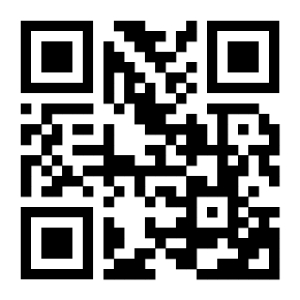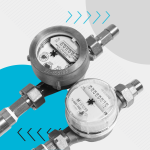
- The President of UOKiK imposed a fine of almost PLN 1.8 million on eleven companies from the geodetic and cartographic industry.
- He also initiated antitrust proceedings against seven companies offering laundry services.
- Both cases concern competition-restricting agreements.
The President of UOKiK issued a decision concerning tender collusion on the market for cartographic works for the Geodetic and Cartographic Service. The investigation revealed that eleven geodetic and cartographic companies jointly determined the terms of their participation in public tenders. The companies entered the tenders in the form of a large consortium, which submitted one joint bid and then divided the awarded order among themselves. In practice, this meant that some companies formally participated in tenders but did not perform any work. In the opinion of the President of UOKiK, entrepreneurs operating in smaller teams were able to carry out the tasks commissioned in tenders, and the creation of the consortium was aimed at concluding a tender collusion agreement and eliminating competition between its participants.
– Concluding a consortium is an acceptable form of cooperation between entrepreneurs. However, if the company can perform the services on its own or if they can be performed by a smaller number of entities, then entering the tender in the form of a large consortium may be considered tender collusion that restricts competition. This was the case with companies from the cartographic and geodetic industry – explains Tomasz Chróstny, President of UOKiK.
Eleven companies will pay a total of almost PLN 1.8 million in fines for participating in an unlawful agreement. The entities fined are the following: Geokart–International, Okręgowe Przedsiębiorstwo Geodezyjno-Kartograficzne w Koszalinie, Okręgowe Przedsiębiorstwo Geodezyjno-Kartograficzne w Olsztynie, Okręgowe Przedsiębiorstwo Geodezyjno-Kartograficzne w Krakowie, Opegieka, OPGK Rzeszów, Polkart, Przedsiębiorstwo Produkcyjno-Handlowo-Usługowe Gepol, Wielkopolskie Przedsiębiorstwo Geodezyjno-Kartograficzne Geomat, Zakład Usług Geodezyjnych i Kartograficznych Pryzmat, and InterTIM.
Pricing and withdrawal of bids
The second case concerning tenders involves two antitrust proceedings relating to the possible conclusion of prohibited agreements by companies providing laundry services to hospitals. The proceedings involved: Citonet-Kraków sp. z o.o., Citonet-Śląski sp. z o.o., Toruńskie Zakłady Materiałów Opatrunkowych S.A., Tom-Marg ZPCH sp. z o.o., Wrotom sp. z o.o., “Wod-Chem” Rental sp. z o.o., and Pralnia Wod-Chem” Mandryk sp. j. The suspected collusions may have concerned tenders organised by hospitals from the Silesian, Lesser Poland, Świętokrzyskie, Opole, and Łódź voivodeships.
A large part of the evidence was obtained by UOKiK employees during searches of four laundry companies, which were carried out with the court’s consent and with the assistance of the Police. One of the pieces of evidence seized was an exchange of messages conducted via a mobile app. Representatives of two companies established specific amounts that the companies were to propose in tender procedures. In this way, they positioned themselves in the bid rankings to ultimately influence the tender outcome. The agreements were reflected in the bids submitted later. This may indicate that they were not submitted independently and honestly. The participants in the tender collusion did not achieve their intended goal and, despite prior price setting, another bidder won.
In the remaining tenders covered by the antitrust proceedings, the tender participants agreed to withdraw less advantageous bids from the tenders. In this way, they gave the colluding participant with the more expensive proposal a chance to win the tender. Such action could inflate the prices of laundry services for hospitals and, consequently, also for patients.
If the allegations are confirmed, entrepreneurs face financial penalties of up to 10 percent of turnover for each practice.
Consequences of collusion
Tender collusion is particularly harmful when it involves public procurement because it leads to the misuse of public money, which ultimately harms society as a whole. Such agreements distort the functioning of the public procurement system, preventing the tender from achieving its objective of selecting the best bid through fair competition.
An enterprise involved in a competition-restricting agreement faces a fine of up to 10% of its turnover. The managers responsible for concluding the tender collusion agreement, in turn, face a fine of up to PLN 2 million.
Contact the Office of Competition and Consumer Protection
Severe sanctions can be avoided by taking advantage of the leniency scheme. It offers businesses involved in an illegal agreement and managers responsible for entering into a price-fixing arrangement an opportunity to reduce a sanction or, in some cases, avoid it altogether. It is intended for those who agree to cooperate with the President of UOKiK as a “crown witness” and provide evidence or information regarding the existence of a prohibited agreement. We encourage the parties interested in the leniency scheme to contact UOKiK. UOKiK staff will answer any questions, including anonymous questions, about the leniency scheme at the phone line set up specifically for that purpose, available by calling the following number: 22 55 60 555.
We would also like to remind you that we operate a programme to obtain information from anonymous whistleblowers. Do you wish to inform UOKiK about competition restricting practices? Visit https://uokik.whiblo.pl/ or scan the QR code below and use the simple form. The system we use guarantees full anonymity, including vis-a-vis the Office itself.
Information for the media
| +48 603 124 154 | |
| biuroprasowe@uokik.gov.pl | |
 | pl. Powstańców Warszawy 1 00-950 Warszawa |



















